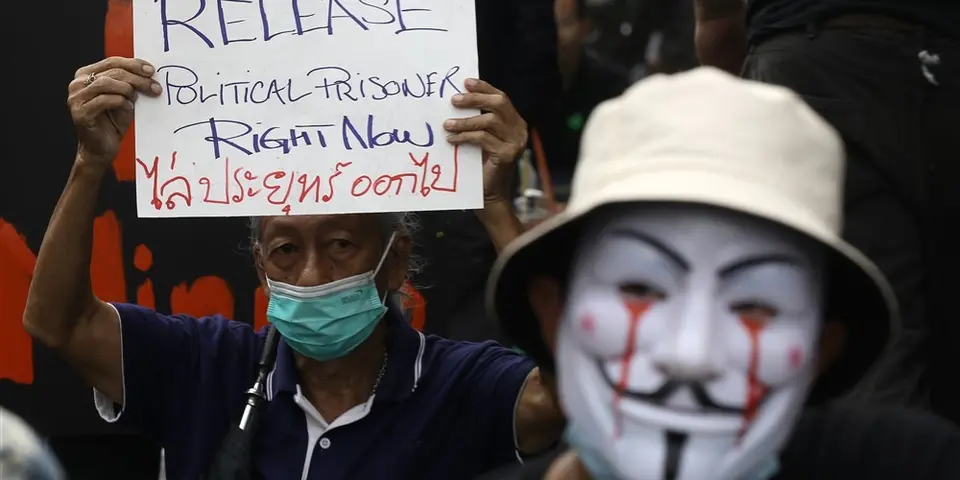
Southeast Asian MPs urge the Thai government to listen to hunger strikers, amend the lèse-majesté Law
February 10, 2023

JAKARTA – Parliamentarians from all over Southeast Asia are urging the Thai government to listen to the demands of two young activists on hunger strike, and do everything they can to save their lives. ASEAN Parliamentarians for Human Rights (APHR) also would like to invite Members of the Thai Parliament and relevant authorities to open a debate on amending the draconian lèse-majesté Law, with which both activists have been charged.
Tantawan “Tawan” Tuatulanon and Orawan “Bam” Phupong, 21 and 23 years old respectively, started their hunger strike on 18 January to demand reforms in the Thai justice system, the release of political prisoners and the abolition, or reform, of some of the laws used against dissidents, including the lèse-majesté law. According to media reports, the two activists are extremely weak, and there is concern for their lives.
The two activists face charges of lèse-majeste for publicly holding a sign asking whether the motorcades of members of the royal family, that often entail road closures in Bangkok, create inconveniences for the public. Tantawan also faces a second charge for the contents of a livestream she conducted on Facebook.
“It is tragic that these two young women feel that they have to put their lives at risk to fight for their beliefs. Whatever one may think of their ideas, they should be allowed to express them freely, as it would happen in a truly democratic country, and not amidst a climate of repression that leads to such extreme ways to voice dissent. Right now, the first priority should be to save their lives, but it is also crucial to initiate a candid debate on their demands,” said Kasit Piromya, former Thai Foreign Minister, and APHR Board Member.
Article 112 of Thailand’s Penal Code states that, “whoever defames, insults, or threatens the King, the Queen, the Heir-apparent, or the Regent, shall be punished with imprisonment of three to fifteen years.” The Thai law of lèse-majesté, designed to defend and protect the revered monarchy, is one of the strictest in the world. It is often interpreted in a very loose manner and has been used widely in recent years as a weapon against political rivals. The main reason for this is that any Thai citizen can bring charges against anybody for allegedly violating Article 112.
A series of student protests broke the taboo on the monarchy in Thailand in 2020, demanding reforms on the institution, but they largely faded out in 2021, when the authorities began to crack down on protestors with accusations of lèse-majeste, as well as other offenses.
According to Thai Lawyers for Human Rights, at least 215 people in 234 cases were prosecuted under Article 112 between November 2020 and June 2022, including 17 minors. Of these lawsuits, at least 108 were filed by regular citizens, while the rest were filed by different Thai state institutions.
“There must be a law that protects the honor and safety of the Head of State, but it should comply with human rights standards. Article 112 prescribes an excessive punishment, and has been used all too often in a malicious way as a political weapon. Lawmakers in Thailand should look to reform the law. The penalties should be reduced, without a minimum sentence, and ordinary Thais should not be able to bring such charges; that only fosters witch-hunts. Only the Bureau of the Royal Household and the Public Prosecutor should be entitled to bring charges against those deemed to have defamed the king. A thorough revision of the lèse-majesté law will help to democratize Thailand, but will also benefit the monarchy itself, as an open debate of its role in modern Thailand is more necessary than ever,” said Kasit Piromya.
ASEAN Parliamentarians for Human Rights (APHR) was founded in June 2013 with the objective of promoting democracy and human rights across Southeast Asia. Our founding members include many of the region's most progressive Members of Parliament (MPs), with a proven track record of human rights advocacy work.